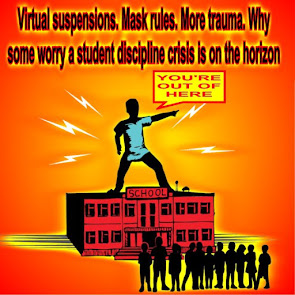Virtual suspensions. Mask rules. More trauma. Why some worry a student discipline crisis is on the horizon
As America’s students head back into their virtual or real-life classrooms, new rules await.
In Jacksonville, Florida, students who don’t wear a mask repeatedly could be removed from school and made to learn online. In some Texas districts, intentionally coughing on someone can be classified as assault. In Memphis, minor misbehaviors could land students in an online “supervised study.”
It’s amounting to a flood of changes to school rules and discipline codes at a time of heightened stress for students, parents, and teachers.
Those rules reflect schools’ attempts to make learning during a pandemic safe and possible. But the increased attention to student misbehavior has advocates and many parents very worried that students who were disproportionately removed from classrooms before the pandemic — namely Black and Native students, and students with disabilities — will bear the brunt of these new consequences, undermining schools’ promises to provide students from hard-hit communities with extra social and emotional support.
“We have seen and felt the impact of having a Black child with learning differences and how that’s been treated disciplinarily. So I’ve got a lot of concerns,” said Cassandra Kaczocha, a parent of a son headed into eighth grade in Chicago, where schools are set to start virtually and monitor student engagement over a six-hour school day. “He can’t sit there and look at the screen the whole time and give the appropriate cues to CONTINUE READING: Virtual suspensions. Mask rules. More trauma. Why some worry a student discipline crisis is on the horizon - Chalkbeat




















